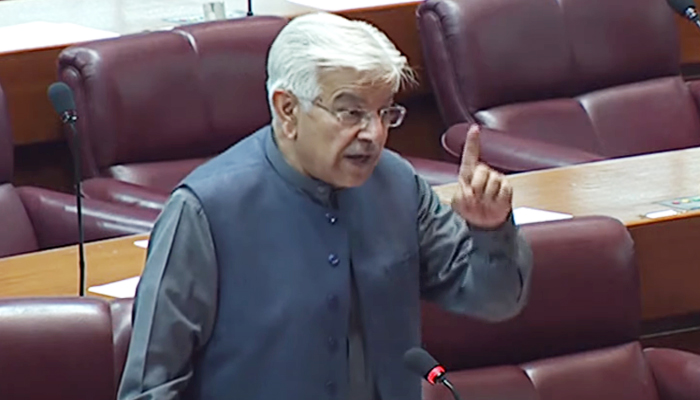
Pakistan Claims to Have Jammed Indian Rafale Jets Amid Rising Border Tensions
India Suspends Indus Waters Treaty, Expels Pakistanis After Pahalgam Attack
ISLAMABAD — Defence Minister Khawaja Asif revealed on Sunday that Pakistan successfully electronically jammed Indian Rafale fighter jets during a recent escalation along the Line of Control (LoC), forcing them to retreat. The remarks were made during his appearance on ARY News program Sawal Yeh Hai, where he emphasized Pakistan’s prompt military response to Indian air activity over occupied Jammu and Kashmir.
Asif stated that the Indian Air Force had deployed Rafale jets in the region, but Pakistan’s timely electronic countermeasures neutralized their advantage. “We jammed their Rafales, and they had to retreat,” he said.
The defence minister warned that further military skirmishes between the two nuclear-armed neighbors cannot be ruled out. He also criticized India’s immediate blame on Pakistan for the April 22 attack in Pahalgam, which left 26 dead and several injured. “Had Pakistan not demanded an impartial investigation, the international narrative could have shifted aggressively against us,” Asif noted.
Following the Pahalgam incident, India escalated diplomatic and strategic measures. Without presenting evidence, New Delhi accused Pakistan-based elements of orchestrating the attack. In response, the Indian government suspended the decades-old Indus Waters Treaty — also known as the Sindh Tas Agreement — and ordered Pakistani nationals to leave India within 48 hours.
Khawaja Asif confirmed that Pakistan will approach the World Bank in the coming days over what he termed India’s “unilateral and unlawful” suspension of the water-sharing treaty, calling it a violation of international agreements.
Additionally, India has blocked the social media accounts of various Pakistani news outlets, politicians, and even cricketers, further straining bilateral ties.
Read more: DG ISPR, Info Minister to expose Indian misinformation with LoC Media Tour today
The ongoing diplomatic and military friction comes at a time of heightened regional instability, with both sides stepping up security along the LoC and diplomatic channels faltering.



Comments are closed, but trackbacks and pingbacks are open.